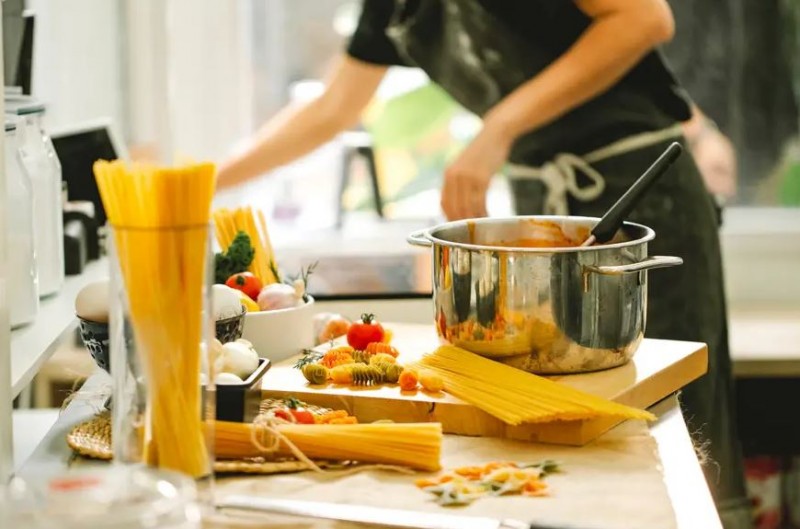
Cooking is undoubtedly an art that goes beyond mere sustenance. It is an avenue through which we can express our creativity, explore various flavors, and nourish our bodies. However, the journey from selecting fresh ingredients to storing cooked meals requires mindful decisions to ensure that the art of cooking translates into a healthy and enjoyable experience. This article delves into the critical aspects of buying, cooking, and storing food, shedding light on common mistakes that can have a detrimental impact on our health.
Selecting the Right Ingredients
The foundation of a nutritious and delicious meal lies in the quality of the ingredients chosen. When purchasing fruits and vegetables, opt for those that are in season, as they are likely to be fresher and more flavorful. Avoid overly bruised or discolored produce, as they may indicate a lack of freshness.
Mindful Meat and Seafood Selection
For those who include animal products in their diet, selecting high-quality meat and seafood is essential. Choose lean cuts of meat and fresh seafood to minimize saturated fat intake. Ensure that meat is properly labeled and sourced from reputable sources to reduce the risk of contamination.
Whole Grains and Legumes
Incorporating whole grains and legumes into your diet not only adds variety but also boosts nutritional content. Opt for whole wheat, quinoa, lentils, and beans, as they are rich in fiber, protein, and essential nutrients.
Hygiene and Food Preparation
Maintaining proper hygiene during food preparation cannot be emphasized enough. Wash your hands thoroughly before handling food and ensure that all utensils and surfaces are clean. Cross-contamination between raw and cooked foods should be avoided by using separate cutting boards and utensils.
Balanced Cooking Techniques
Different cooking methods offer varying nutritional benefits. While frying and deep-frying may enhance taste, they also increase the caloric content and trans fat levels of the dish. Instead, consider baking, grilling, steaming, and sautéing for healthier cooking alternatives that preserve the natural flavors of ingredients.
Portion Control
Even the healthiest of meals can become problematic if portion sizes are not managed. Overeating contributes to weight gain and can lead to various health issues. Be mindful of portion sizes and consider using smaller plates to control serving sizes.
Smart Seasoning Choices
Herbs, spices, and natural flavor enhancers can transform a dish without relying on excessive salt, sugar, or unhealthy fats. Experiment with garlic, ginger, turmeric, cumin, and various herbs to add depth and complexity to your meals.
The Role of Food Storage
Food storage is an integral part of the culinary process, impacting both taste and safety. Improper storage can lead to spoilage, foodborne illnesses, and nutrient loss. Here are some guidelines to ensure food remains fresh and safe:
a. Refrigeration: Perishable items like dairy, meat, poultry, and cooked foods should be stored in the refrigerator at temperatures below 40°F (4.4°C) to prevent bacterial growth.
b. Freezing: Freezing can extend the shelf life of many foods. Ensure proper packaging to prevent freezer burn and label items with the date of freezing.
c. Pantry Staples: Dry goods like grains, legumes, and canned goods should be stored in a cool, dry place away from direct sunlight.
d. Proper Packaging: Use airtight containers to prevent moisture and air from compromising the quality of stored foods.
e. First-In, First-Out (FIFO): When storing multiple items, follow the FIFO principle – use the oldest items first to prevent food wastage.
Avoiding Common Food Mistakes
Several common food mistakes can have adverse effects on health:
a. Leaving Perishables at Room Temperature: Perishable items left at room temperature for extended periods can become breeding grounds for bacteria.
b. Washing Before Storage: While washing fruits and vegetables is essential, doing so before storage can lead to moisture buildup and accelerate spoilage. Wash before use instead.
c. Overcooking Vegetables: Overcooking vegetables can cause nutrient loss. Opt for shorter cooking times or consider steaming to retain nutrients.
d. Storing Hot Foods in the Fridge: Placing hot foods directly in the refrigerator can raise its internal temperature, potentially leading to bacterial growth. Allow hot foods to cool before refrigerating.
e. Keeping Leftovers Indefinitely: Leftovers should be consumed within a reasonable time frame (usually within 3-4 days) to ensure both safety and quality.
Cooking is a journey that involves not only culinary skills but also an understanding of how our choices impact our health. From selecting fresh ingredients to practicing proper food preparation techniques and adopting effective food storage practices, each step contributes to a wholesome dining experience. By avoiding common food mistakes and embracing mindful cooking habits, we can savor the true essence of the culinary art while nurturing our bodies and overall well-being.
Global Summit on Traditional Drugs: Bridging Ancient and Modern Practices, says Mandaviya
Embrace Besan: 5 Creative Ways to Boost Your Diabetes Diet
Is Chicken Good For Diabetics? Exploring the Diabetes-Friendly Benefits of Chicken Consumption